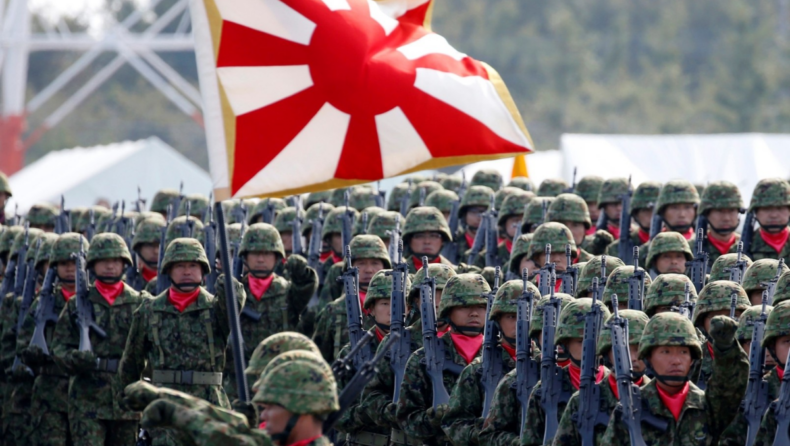For 75 years Japan has followed a pacifist constitution avoiding large-scale militarisation. But as the China-Taiwan confrontation brews, it has destabilised the region. Japan is expanding its military capabilities as Taiwan is threatened by a full-scale military invasion by China.

Under the leadership of Japanese Prime Minister Fumio Kishida, Japan is expanding its military capabilities,
something as unprecedented as Germany breaking its neutrality to supply arms to Ukraine.
Both nations after the defeat in the second world war were reduced to a self-defence force with limited offensive capabilities.
While both countries participated in military exercises with the United States and its allies, after the war their
constitution took a pacifist turn until 2022.
Due to the Russo-Ukraine war in Europe and the Chinese show of aggression in the pacific, both countries
have moved away from total neutrality to partial neutrality as they arm themselves in case of an invasion.
The Japanese Prime Minister said, “will not rule out any options, including so-called ‘counterstrike capabilities,’ and will realistically consider what is necessary to protect the lives and livelihoods of our people”.
Japan’s proximity to Taiwan
Taiwan is only 108 km away from the Japanese coast. Hence there is a very real chance of spillover in case of a China-Taiwan war.
Earlier this month on August 4, five ballistic missiles fired by China, splashed in the waters of Japan’s
Exclusive Economic Zone, offering them a taste of reality and Chinese reach on Japan.
Japan lodged a protest against China through diplomatic channels.
Moreover reported Chinese aircraft have been violating sovereign airspace all over the pacific as a show of
force, an intimidation tactic that is both used by Russia and China, which includes low-level flying, pulling of
illegal manoeuvre on mid-flight ally aircraft and violating sovereign airspace.
While both Russia and China have been criticized over diplomatic channels countless times and China, and
Russia have denied accusations countless times, this tussle of provocation and appeasement goes on.
Why is it about time to expand militarily?
Warfare has changed. The tactics that were used by the United States in Afghanistan are only effective if the
enemy force is as ill-equipped as the Taliban and Al-Queda.
But a war with a technologically advanced country is now a gamble. The technological advantage of allied nations is non-existent since fifth-generation military technology has levelled the field. Denying to expand militarily can be a devastating blow for any Nation.
And given the frequency of military aggression by Russia and China and the nuclear threat posed by North
Korea, military expansion is necessary for self-defence.
An adjunct defence researcher Bruce Bennett of RAND Corporation said that Japan faces a massive regional military threat increase over the last few years and in future years from both China and North Korea.
He also added that the Japanese government would be “irresponsible” if it didn’t seek to counter the rise in regional military threats from the two countries.













